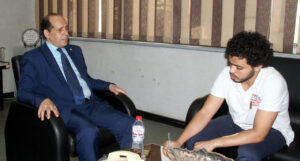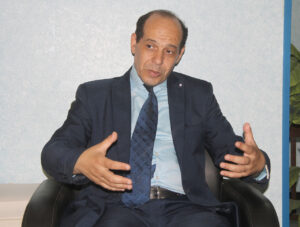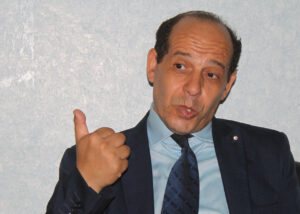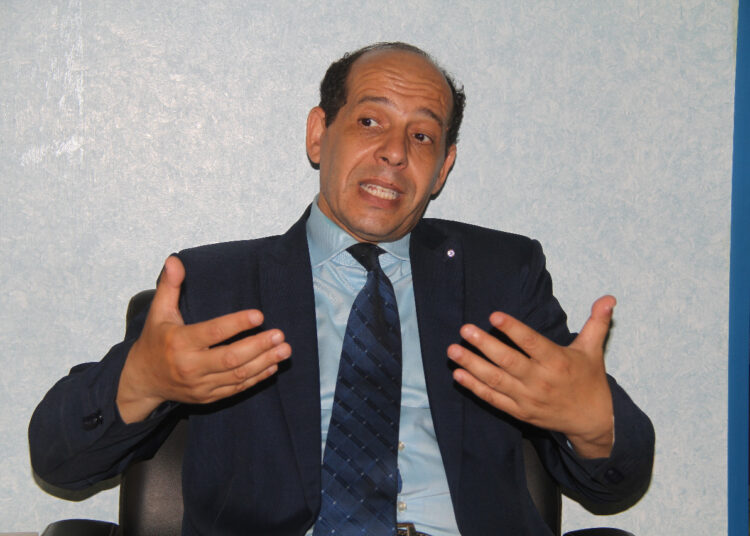President Abdel Fattah El Sisi has been calling for renewing religious discourse and refining school curricula on the road to bringing up a new generation of Egyptian Muslims who are true to the real message of their faith, one of moderation, peace and co-existence, since coming to power in mid-2014.
Mohamed Tharwat, an investigative journalist who dived deep into the study of faiths and comparative religions, with numerous studies, inside and outside Egypt, and travels around the world, realised the importance of the president’s calls from the very beginning.
A PhD holder in interfaith dialogue from the Higher Institute of Islamic Studies in Münster University, Germany, and now a professor of Islamic Philosophy at Cairo University, Tharwat dwells in this interview with the Egyptian Mail on the need for speeding up the reform of religious discourse and school curricula and expanding interfaith dialogue.
Sir, why did you pick interfaith dialogue as a field of study?
The fact is that no religion calls for violence. All religions, especially Islam, call for equality, tolerance and co-existence.
Almost 14 centuries ago, Islam’s prophet, Muhammad {peace be upon him} phrased the Constitution of Medina after migrating to Medina.
The constitution consists of 52 articles, 27 of which draw guidelines for relations between Muslims and non-Muslims.
It allows the adherents of other faiths to live freely and peacefully with Muslims. The same constitution allows the same people to practice their rituals in complete freedom.

So, how are Muslims viewed around the world now?
Muslims are generally accused of violence, extremism and misogyny. Edicts that encourage violence stem from a real misunderstanding of Islamic teachings.
Terrorist groups, such as the Islamic State, have grossly tarnished Islam’s image everywhere. So, Muslims have a duty now to demonstrate the true teachings of their faith, especially peacefulness and tolerance.
You talk all the time about reforming religious discourse. What do you mean exactly by this reform process?
Reforming religious discourse has many axes to it. However, accepting others as they are, regardless of which religion they follow, which god they pray to, which complexion they have or which language they speak, should be the main point we reach by this reform.
The discourse that will be produced by the reform process has to be one that rejects hate, and spreads ideals, such as tolerance, understanding and dialogue. It is important to overstress that Islam and these ideas are two sides of the same coin.
One of my studies focused on the role European social media influencers play in spreading tolerance and the correct image of Muslims.
For instance, Ali Jan, a Turkish influencer who lives in Germany, lobbies against misogyny and racism. He works to spread the correct image of Islam and Muslims.

What can be done to expand interfaith dialogue globally?
Let me tell you that the required dialogue should not be about meetings and encounters between specialists and men of religion. I believe this dialogue should be for life. I mean it has to focus on people’s lives and what they encounter every day. It should not be the concern of men of religion.
Religious diversity matters strongly for world peace. Humanity has suffered a lot because of the hatred and the violence that were induced by religious conflicts and wars. This is about time peace and co-existence took the stead of this hatred.
How do you view President Sisi’s call for reforming religious discourse?
The president refers all the time to ‘Egypt’s civilised image’. He always says that Egypt is a country of coexistence and peace.
Sisi’s administration restored a huge number of ancient Muslim, Christian and Jewish places of worship.
President Sisi was keen on inviting Mufaddal Saifuddin, the spiritual leader of Dawoodi Bohras, to the reopening of Hussein Mosque in downtown Cairo after its restoration in April this year. The invitation offered insights into the ideals the Egyptian leader represents: tolerance and love.

Can Egypt lead the way in this regard?
All state agencies have to play a role in the renewal of religious discourse. Islamic religious institutions, the universities, the schools, youth centres and cultural centres have to play a role in this regard.
The universities and the schools have to spread awareness among students and pupils about the importance of coexistence. They can do this through the arts and cultural events.
The media also has a major role to pay here.
Why is education important for the fight against extremism and terrorism?
Education will be important in this battle, if dialogue and tolerance come at the heart of school curricula. This will ensure that tolerance is part of the education of Egyptians, regardless of which religion they follow, throughout all educational stages. This will contribute to the presence of a new generation that believes in co-existence, diversity and peace.






Discussion about this post